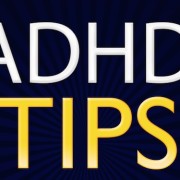When to Seek Help
It may be difficult to know when to make that first call for help with your child’s behavior. You may wonder if his/her behavior is just a phase, whether it is normal for a child of his/her age, or if his/her inattention is severe enough to warrant a diagnosis. If any of the following 6 situations sound similar to your experiences, you may want to consider getting help for your child’s potential ADHD.
- You have noticed that your child displays greater activity, inattentiveness, and impulsivity than other children for the past 6 months or longer.
- You expend more energy and time than other parents in keeping your child out of trouble and under control.
- For the past 6 months (or more) other parents have told you that your child is less controlled, more impulsive, and less attentive when with his/her peers.
- You have painstakingly viewed or have been informed that other children do not want to play with your child due to his/her active, impulsive, or aggressive behavior.
- You lose your temper often with your child or feel exhausted or depressed due to the time and energy that your parenting involves. You may also feel as though you’re on the verge of harming your child with physical discipline.
- A teacher or daycare staff member has told you that your child has behavioral issues.
You may be wondering where to seek help for your child. The first step is to make the phone call to begin a diagnosis process and, eventually, a treatment process. Contact Dr. Gordon, a neuropsychologist, for a comprehensive ADHD assessment.
Contact Dr. Gordon for help with your ADHD. We have treatment and solutions available online, by phone, and in our offices.
written by: Brianna Malinowski, Jay Gordon, Ph.D
Barkley, R. (2013). Taking charge of ADHD: The complete, authoritative guide for parents (Third ed.). New York, NY: The Guilford Press.
Picture retrieved from: http://www.zenlifesolutions.com/do-you-know-what-you-want/question-mark/ on Sept. 24, 2015





